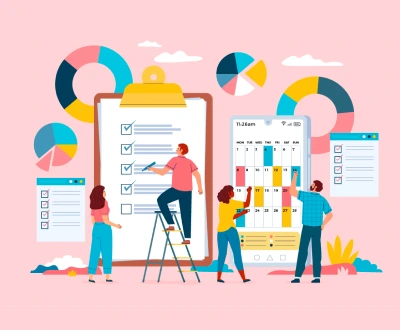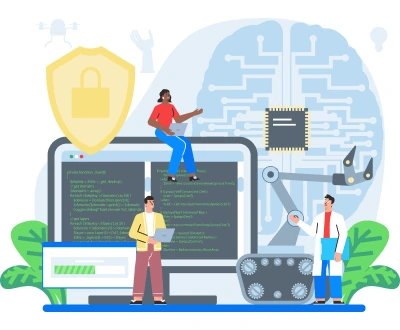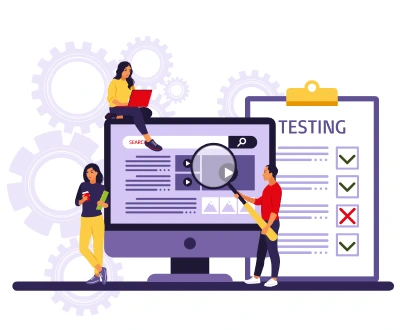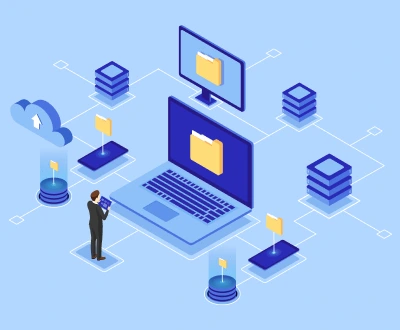Implementation of a Custom Solid Waste Management (SWM) Software Solution | Case Study
A 30+ years old US based Product company that deals with GovTech, wanted to develop a comprehensive Solid Waste Management (SWM) system for an enterprise client. The objective was to create a scalable and integrated platform that enhances operational efficiency, automates key processes, and improves service delivery in waste management operations. The new system will be a custom-built solution tailored to specific customer requirements, rather than a replica of the existing system.
Objective
The objective of this case study is to highlight the development and implementation of a scalable, automated, and integrated Solid Waste Management (SWM) system. The key goals include:
- 01Enhancing Operational Efficiency: Automating processes to reduce manual workload and improve accuracy.
- 02Optimizing Route Management: Implementing AI-driven route planning and real-time tracking to minimize fuel consumption and travel time.
- 03Automating Work Order Processing: Assigning and tracking work orders digitally to improve service response times.
- 04Integrating Advanced Technologies: Utilizing RFID for container tracking and MDVR for real-time video monitoring.
- 05Ensuring Data Security & Compliance: Implementing robust security measures, including encrypted storage and role-based access control.
- 06Improving Customer Satisfaction: Providing real-time updates, automated billing, and detailed service reports to enhance transparency and trust.
- 07Ensuring Scalability & Future Readiness: Designing a flexible system capable of integrating new technologies and expanding with business growth.

Solution Overview
The software solution was designed as a web and mobile-based platform, featuring the following core components:
Web Portal & Backend
A centralized system that provides administrators with full control over customer management, work orders, route configuration, and reporting. The backend ensures seamless data processing, automated workflows, and analytics-driven insights for informed decision-making.
RFID Scanner Integration
Enables automatic container identification and tracking, eliminating the need for manual data entry. This ensures accurate container assignments, prevents unauthorized waste disposal, and enhances operational efficiency.
Mobile DVR (MDVR) & Video Cameras
Improve vehicle tracking by capturing live video feeds of waste collection activities. The MDVR system allows real-time monitoring and provides recorded footage for compliance, dispute resolution, and quality assurance.
Industrial Android Tablets
Equipped with user-friendly interfaces, these devices provide field personnel with real-time access to operational data, including work orders, route plans, customer details, and vehicle tracking. The tablets facilitate seamless communication between drivers and administrators, improving coordination and task execution.
Business Challenge
The client required a solution that could efficiently manage customer records, route optimization, work order management, vehicle tracking, and container allocation while integrating seamlessly with RFID scanners and Mobile Digital Video Recorders (MDVR). The primary challenges included:
- Lack of real-time monitoring and tracking of waste collection vehicles.
- Inefficiencies in work order management and route optimization.
- Manual data entry leading to errors and operational delays.
- Need for seamless integration with RFID and MDVR technologies.
Implementation Approach

Requirement Analysis

Design & Development

Integration & Testing

Deployment & Training
Key Features Implemented
Customer Management Module
- Create, read, update, and delete customer records.
- Integration with Google Maps for location tracking.
- Secure data storage with encryption for sensitive information.
- Customizable customer profiles with additional fields for demographics and service preferences.
- Customer support and ticketing system to manage inquiries and service requests.
Work Order Management
- Automatic assignment of work order numbers.
- Integration with vehicle tracking for optimized work assignments.
- User-defined statuses for better tracking.
- Real-time notifications and alerts for work order updates and completion.
- Digital signatures and photo attachments for proof of service.
Route Optimization and Tracking
- Automated and manual route configuration.
- Geo-fencing and real-time GPS tracking.
- Planned vs. actual route comparison with performance analytics.
- AI-based route optimization to minimize fuel consumption and travel time.
- Dynamic rerouting capabilities in case of road closures or emergencies.
Container and Vehicle Management
- RFID-based container tracking.
- Inventory management for containers and vehicles.
- Seamless assignment and updates via mobile applications.
- Condition monitoring for containers with automated maintenance alerts.
- Vehicle diagnostics and preventive maintenance tracking.
Billing and Reporting
- Automated bill generation with multiple payment modes.
- Comprehensive reports including work order, route, container, and billing insights.
- Secure and encrypted storage for financial transactions.
- Customizable invoices with detailed breakdowns of charges and services.
- Integration with third-party accounting software for seamless financial management.
Technology Stack
- Cloud Infrastructure: Azure Windows Server 16 for front-end and back-end.
- Database Management: Azure MSSQL 16 with periodic backups.
- Mapping Services:Google Maps API for GPS tracking and geo-fencing.
- Security Measures: Encrypted user authentication, secure APIs, and role-based access control.

Results & Benefits
- 50% Improvement in operational efficiency through automated processes, reducing manual interventions and human errors.
- Real-time tracking and monitoring reduced missed collections and inefficiencies by providing accurate, up-to-the-minute vehicle and work order updates.
- Enhanced data security with encrypted sensitive information, role-based access control, and audit trails to ensure compliance with industry standards.
- Scalability and Future Readiness: The system is extendable for future enhancements and integration with new devices, allowing for evolving customer needs and technological advancements.
- Cost Reduction: Automated processes, optimized routes, and efficient resource allocation resulted in significant cost savings in fuel, manpower, and maintenance expenses.
- Improved Customer Satisfaction: Enhanced service reliability, accurate billing, and real-time notifications led to increased customer satisfaction and trust.

